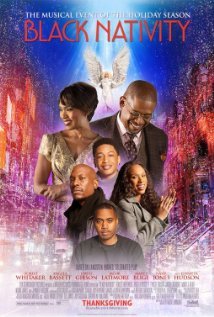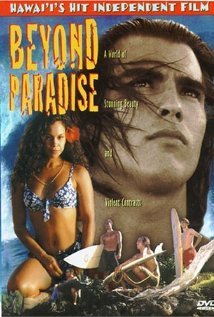“Desperately Seeking Friendships”

| None | Light | Moderate | Heavy | |
|---|---|---|---|---|
| Language | ||||
| Violence | ||||
| Sex | ||||
| Nudity |
What You Need To Know:
BEYOND PARADISE has weak story structure and ends up being an ensemble piece, telling the collective stories of Mark and his three friends, who help him deal with racial intimidation. Of all the heroic stories he could have told, it is perhaps curious that the director focuses on Hawaii’s drug-infested underside in his first feature film. BEYOND PARADISE shows a Hawaii seldom depicted onscreen, replete with drugs, sex, rock and roll, and graphic violence. All scenes are tastefully photographed except for a few which include graphic blood-letting. Director Cunningham keeps up the movie’s pace. The movie concludes with a reconciliation scene.
Content:
(Ro, LLL, VV, N, A, D, M) Romantic worldview of teenage interracial friendships & strife; 34 obscenities, 3 profanities & 4 vulgarities; extensive physical violence, boy hits boy with fist, boy jumps on boy, men kick boy, pickup truck driver kills man, & boy kills boy with fist; passionate necking & sexual innuendo, young men piss on young man; young women in bikinis, & low-cut blouses; teenagers smoke marijuana & hash & drink alcohol; and, pagan religious beliefs & superstitions
More Detail:
Mark is encouraged by the unsolicited affection of Lehua, the cute, but wayward high school senior who invites him to study Hawaiian history with her. Her interest in him causes Aku (Troy Ignacio), a human Hawaiian volcano, to threaten to beat him up when Mark goes into the bathroom. As Aku stridently intimidates Mark, Zulu (Kalani) comes to his defense and defuses the impending emotional explosion.
After undergoing his trial by fear, Mark makes friends with three local high schoolers, Zulu, Ronnie Boy (Lorenzo Callender) and Keao (Daryl Bonilla) by standing up for their rights to use his condominium’s hot tub and by rescuing Lehua’s brother from drowning in the surf. Proud of his divorced father’s gift of a pickup truck, Mark ferries the local boys to and from the beach. They teach him to surf and show him the best swimming holes. Mark blithely pursues his hobby of making home movies of beach scenes in preparation for a desired career in film.
In Mr. Kaneko’s (Brickwood Galuteria’s) Hawaiian history class, the upbeat professor teaches Hawaiian culture and tries to inculcate academic discipline into the goofy students who verge on juvenile delinquents. “There’s only one race on God’s green earth,” he declares, “the human race.” Thus, he undercuts Aku’s militant racial hatred. Mr. Kaneko encourages Zulu to take his SAT prep class and to apply for admission to college. He next sees Zulu outside of church and asks him whether he liked the sermon.
Mr. Kaneko’s aims to motivate his students to achieve in spite of their adolescent indolence. On a beach one afternoon, Mark asks his friends about their ambitions, and they laughingly toss off a couple of haphazard ideas: one thinks he will work in construction, another vows he’ll surf and smoke, and the third will work in a relative’s motel on Oahu. They frolic in the waves, and Mark takes them home. Coming home, Ronnie Boy hears sounds of breaking glass as his father beats up his mother, while at his house, Keao finds that his stoned sister has taken his marijuana stash.
At a sacred Hawaiian grotto, Mark makes the mistake of dancing on the ancient palace pier, much to Ronnie Boy’s discontent, who wrestles him off the holy terrain. In the ensuing argument, Ronnie accuses Mark of changing Zulu’s formerly happy-go-lucky lifestyle, but Mark tells him he had nothing to do with Zulu’s desire to go to college. Ronnie reproaches his friend: “You haoles are all the same; you don’t think of anyone but yourselves.” However, when Mark has an epileptic seizure at the Laundromat, it is Ronnie Boy who comes to his rescue and takes him home. Also, it is Ronnie Boy who defends Mark’s reputation in the climactic school yard fight with fatal consequences.
BEYOND PARADISE has weak story structure, and the storyline meanders, as the focus flicks from Mark to the locals and back to Mark in a circuitous progression. It ends up being an ensemble piece, telling the collective stories of Mark and his three friends, who help him deal with racial intimidation and demonstrate the power of friendship to overcome racial hatred. Of all the heroic stories he could have told, it is perhaps curious that Cunningham focuses on Hawaii’s drug-infested underside in his first feature film. There are plenty of good heroic stories in Hawaii; who is focusing on those?
With a heart as thick as a Hawaiian grass skirt, BEYOND PARADISE tells the truth about the extreme racism and the overcoming loyalty between friends which simmer just beneath Hawaii’s sparkling facade. Hawaii’s gorgeous topography acts almost as an additional character in the movie, providing superb beaches, waves, waterfalls, rain forests, and snow-covered peaks, which aid and abet the unfurling of the story. Cunningham juxtaposes Hawaii’s geographical beauty with the important emotional beats and succeeds in capturing many subtle emotional moments.
BEYOND PARADISE shows a Hawaii seldom depicted onscreen, replete with drugs, sex, rock and roll, and some graphic blood-letting. The movie concludes with reconciliation.


 - Content:
- Content: 


